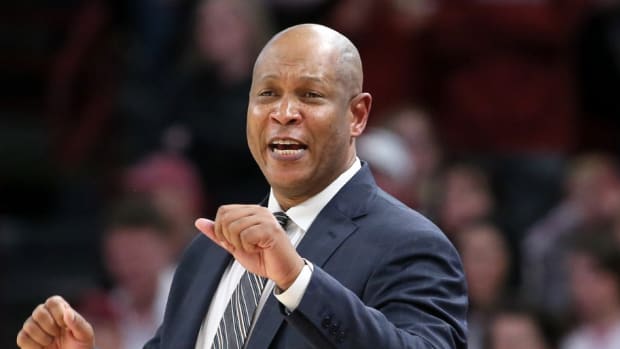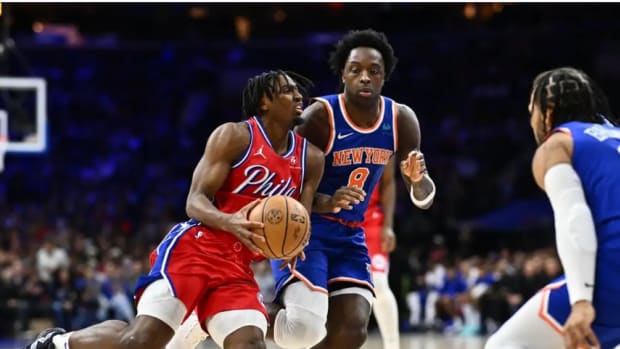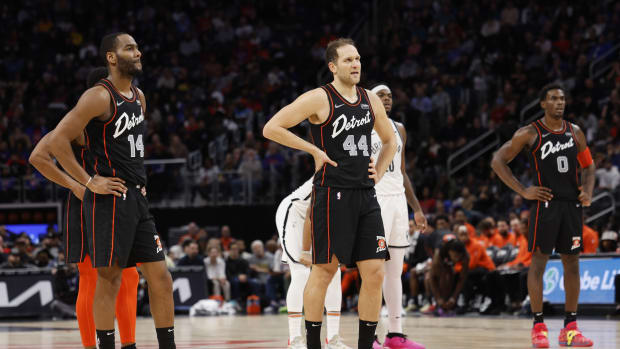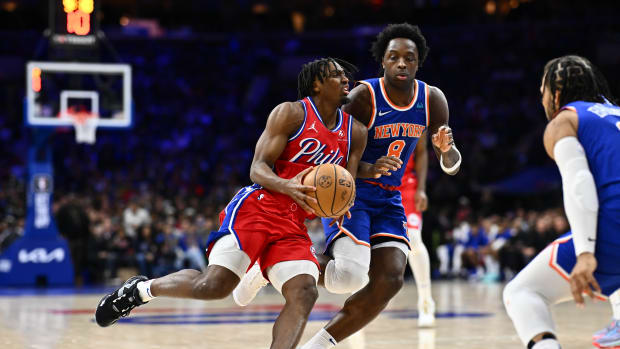Why Salary Cap Decrease Might Work Out For Knicks
It's not often the Knicks find themselves in a better position than the rest of the league. They have yet to put an emphasis on three-point shooting and defense the same way other teams have. They don't stick to a plan. They haven't done things other rebuilding teams do like sacrifice short-term success for long-term gain. The Knicks have a hard time keeping pace with other teams.
The coronavirus crisis has flipped the world on its head. The effects of COVID-19 have been negative in just about every aspect. But in a weird way, it may create an opportunity for the Knicks. The NBA is in a bind financially, as lost revenue from regular season and playoff games is going to affect the salary cap. There's a lot we still don't know: how much it will affect the cap, will the league withhold players' salaries or flatten a cap decrease to soften the blow, and what other scenarios could develop during these unpredictable times. That being said, it's likely that the salary cap does drop a certain amount, which could lead to a lot of contracts looking like overpays by default. There may be no better time to have cap space—and that's where the Knicks could be ahead of the pack.
There's no guarantee New York will make the correct moves with all of their players with team options or partially guaranteed deals for the 2020-2021 season. So let's just live in a world where they prioritize cap space and let go of Bobby Portis, Wayne Ellington, Taj Gibson, Elfrid Payton, and Reggie Bullock, and nearly wipe the slate clean from last year's free agency (I understand the Knicks will likely keep some of those players, and maybe they should, but follow along for the sake of this exercise). That would leave the Knicks on the hook for less than $47 million in 2020-2021 salary committed to Julius Randle, R.J. Barrett, Frank Ntilikina, Dennis Smith Jr., Kevin Knox, Mitchell Robinson, and Ignas Brazdeikis. Last year's salary cap was set at just over $109 million, and while that number is sure to drop, New York still has a whole lot of money to play with.
This advantage may only last one season, and it might only affect the league minimally. But good front offices know how to make the most out of even the smallest of edges, and fans should hope for Leon Rose to get creative and find ways the Knicks can capitalize on their salary cap situation relative to other teams.
One road the Knicks could take is something they really should have considered last season after missing out on Kevin Durant and Kyrie Irving: use their cap space to take on bad contracts in exchange for future assets. Our own Jonathan Macri did an excellent job of breaking down this exact strategy. I strongly recommend reading his Knicks Film School newsletter about the topic, as it outlines several opportunities for the Knicks to use their cap space to help other teams, while improving their chest of assets. Ultimately, even if the Knicks made one lone deal to take on a bloated contract that doesn't extend too long to get a first round pick, that would be considered a clear win.
Another route the Knicks could pursue is trying to control the free agency market with their excess of cash—in a responsible way, of course. New York is one of a few teams with this cap luxury, and it could be used to win a bidding war for the right free agent. Take an unrestricted free agent like Fred VanVleet, for example. The current Raptor is still only 26, and he's proven to be a plus shooter, defender, and winner. VanVleet was likely looking at a large payday in the offseason, and he may still get one, but salary cap restrictions could change the game. Maybe VanVleet's market thins, and many teams that were interested back off because they're worried about their salary cap restrictions. The Knicks could swoop in and give VanVleet more money than anyone else at a number that's still a reasonable price.
It may scare some fans, but the Knicks could even choose to use their cap space the same way they did last year—by signing veterans to short term deals, maintain flexibility, and allow those players to become free agents again when teams have more cap space. The Knicks would just have to be much smarter with who they choose this time around. Any players they bring in would need to provide shooting and/or defense to help the young core progress. They should also stay away from guys who need the ball and tend to stop the offense—like Marcus Morris, Julius Randle, and Bobby Portis. This strategy could work if the Knicks signed a few players but bringing in six like they did last year would be unwise.
For the first time in a while, the Knicks find themselves ahead of the curve — even if it wasn't by their own doing. While their advantage may not be significant, there are ways to capitalize and better the franchise. Rose has been gifted with a unique situation that could present some interesting opportunities for the Knicks. The front office has a chance to start anew and show that they can make smart moves and actually pull the Knicks out of the basement. Now, all they have to do is execute.



